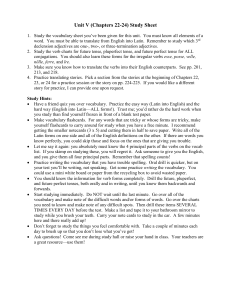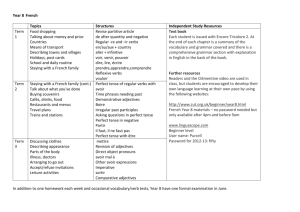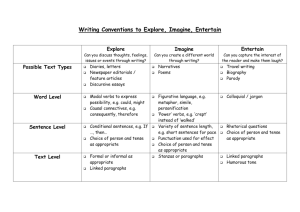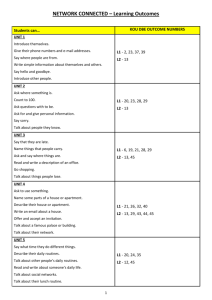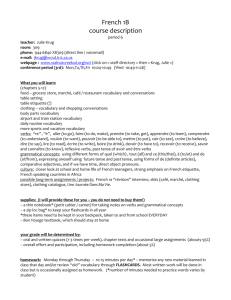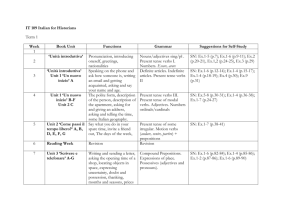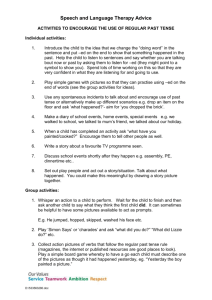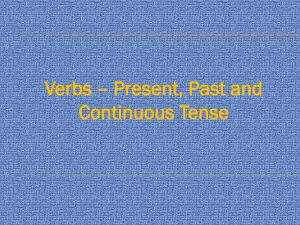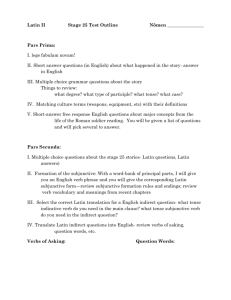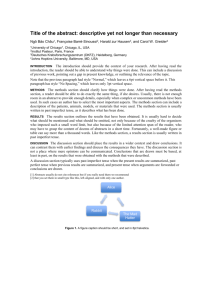ER-Unit-V-Chap-22-24-Exam-Study-Sheet
advertisement
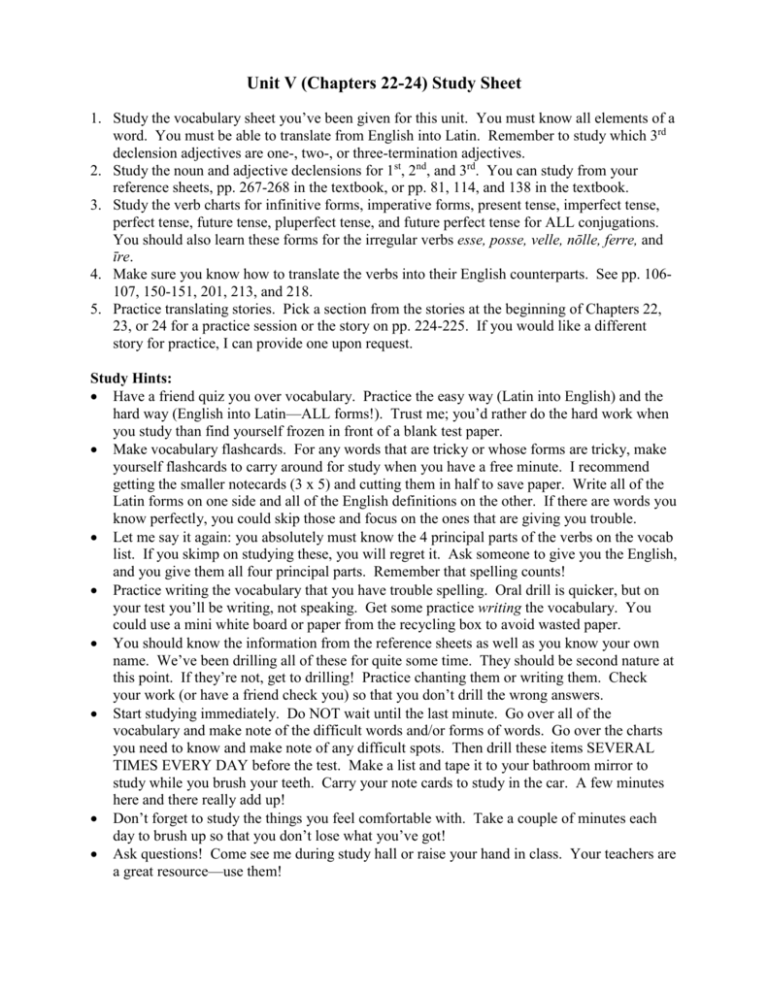
Unit V (Chapters 22-24) Study Sheet 1. Study the vocabulary sheet you’ve been given for this unit. You must know all elements of a word. You must be able to translate from English into Latin. Remember to study which 3rd declension adjectives are one-, two-, or three-termination adjectives. 2. Study the noun and adjective declensions for 1st, 2nd, and 3rd. You can study from your reference sheets, pp. 267-268 in the textbook, or pp. 81, 114, and 138 in the textbook. 3. Study the verb charts for infinitive forms, imperative forms, present tense, imperfect tense, perfect tense, future tense, pluperfect tense, and future perfect tense for ALL conjugations. You should also learn these forms for the irregular verbs esse, posse, velle, nōlle, ferre, and īre. 4. Make sure you know how to translate the verbs into their English counterparts. See pp. 106107, 150-151, 201, 213, and 218. 5. Practice translating stories. Pick a section from the stories at the beginning of Chapters 22, 23, or 24 for a practice session or the story on pp. 224-225. If you would like a different story for practice, I can provide one upon request. Study Hints: Have a friend quiz you over vocabulary. Practice the easy way (Latin into English) and the hard way (English into Latin—ALL forms!). Trust me; you’d rather do the hard work when you study than find yourself frozen in front of a blank test paper. Make vocabulary flashcards. For any words that are tricky or whose forms are tricky, make yourself flashcards to carry around for study when you have a free minute. I recommend getting the smaller notecards (3 x 5) and cutting them in half to save paper. Write all of the Latin forms on one side and all of the English definitions on the other. If there are words you know perfectly, you could skip those and focus on the ones that are giving you trouble. Let me say it again: you absolutely must know the 4 principal parts of the verbs on the vocab list. If you skimp on studying these, you will regret it. Ask someone to give you the English, and you give them all four principal parts. Remember that spelling counts! Practice writing the vocabulary that you have trouble spelling. Oral drill is quicker, but on your test you’ll be writing, not speaking. Get some practice writing the vocabulary. You could use a mini white board or paper from the recycling box to avoid wasted paper. You should know the information from the reference sheets as well as you know your own name. We’ve been drilling all of these for quite some time. They should be second nature at this point. If they’re not, get to drilling! Practice chanting them or writing them. Check your work (or have a friend check you) so that you don’t drill the wrong answers. Start studying immediately. Do NOT wait until the last minute. Go over all of the vocabulary and make note of the difficult words and/or forms of words. Go over the charts you need to know and make note of any difficult spots. Then drill these items SEVERAL TIMES EVERY DAY before the test. Make a list and tape it to your bathroom mirror to study while you brush your teeth. Carry your note cards to study in the car. A few minutes here and there really add up! Don’t forget to study the things you feel comfortable with. Take a couple of minutes each day to brush up so that you don’t lose what you’ve got! Ask questions! Come see me during study hall or raise your hand in class. Your teachers are a great resource—use them!
